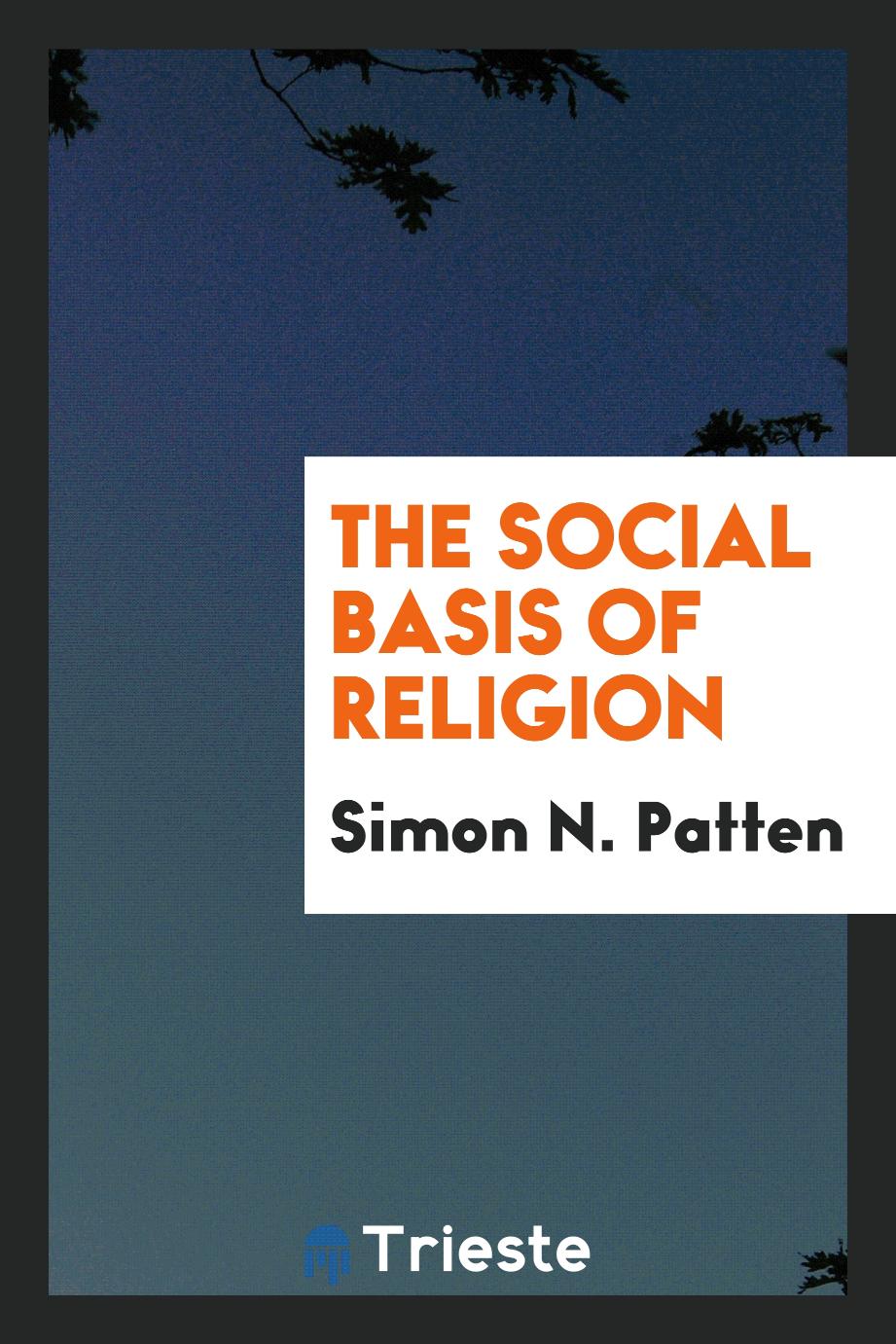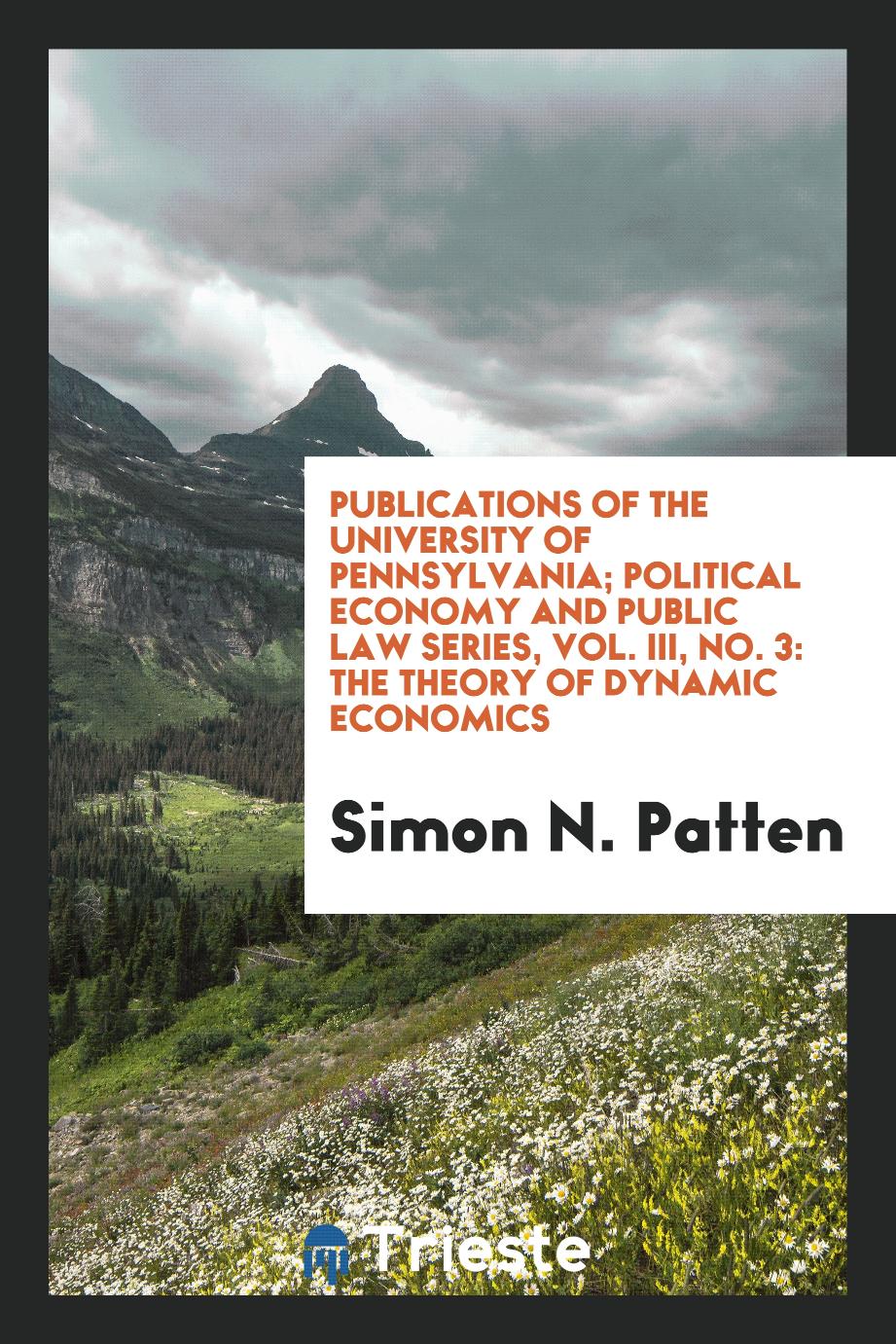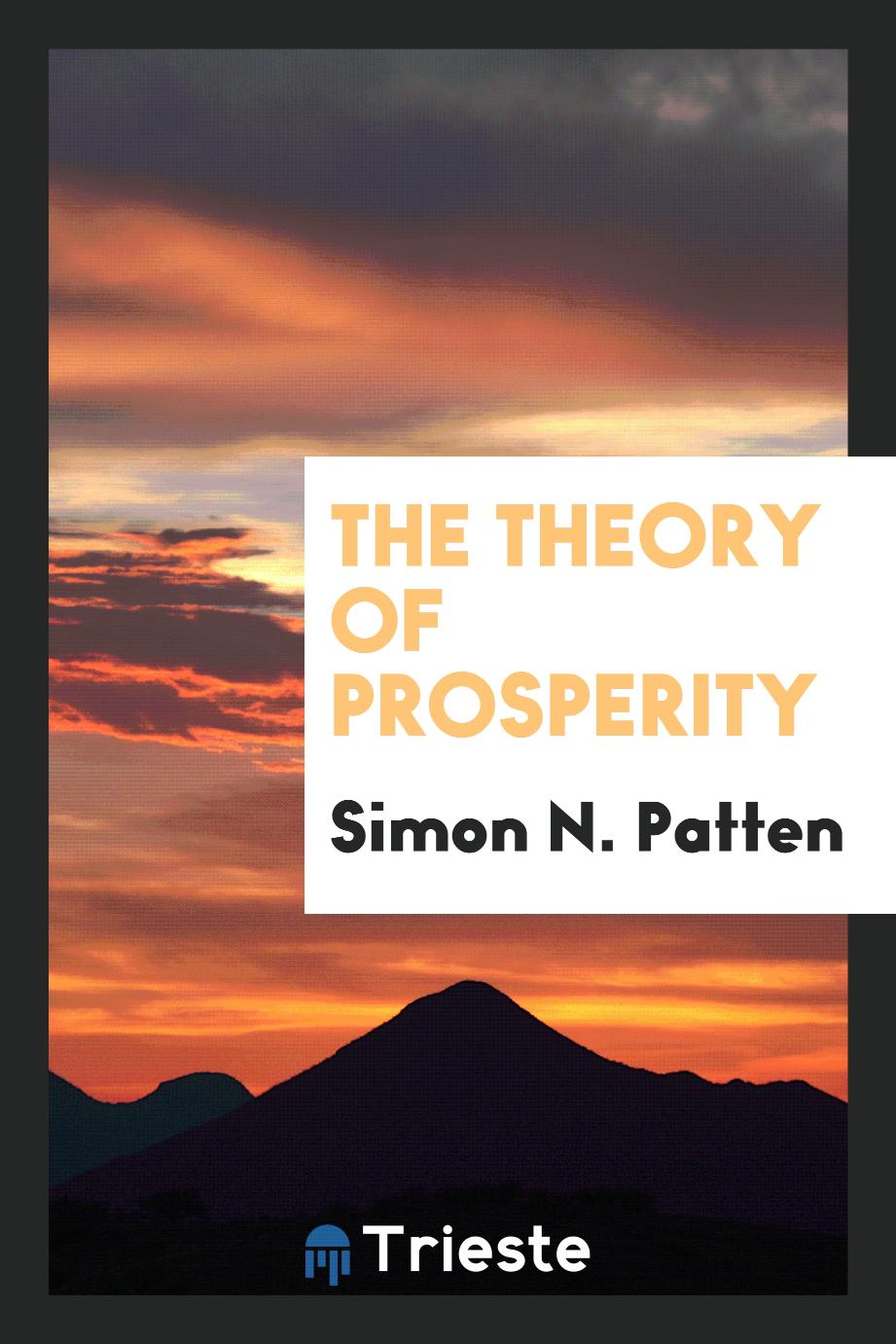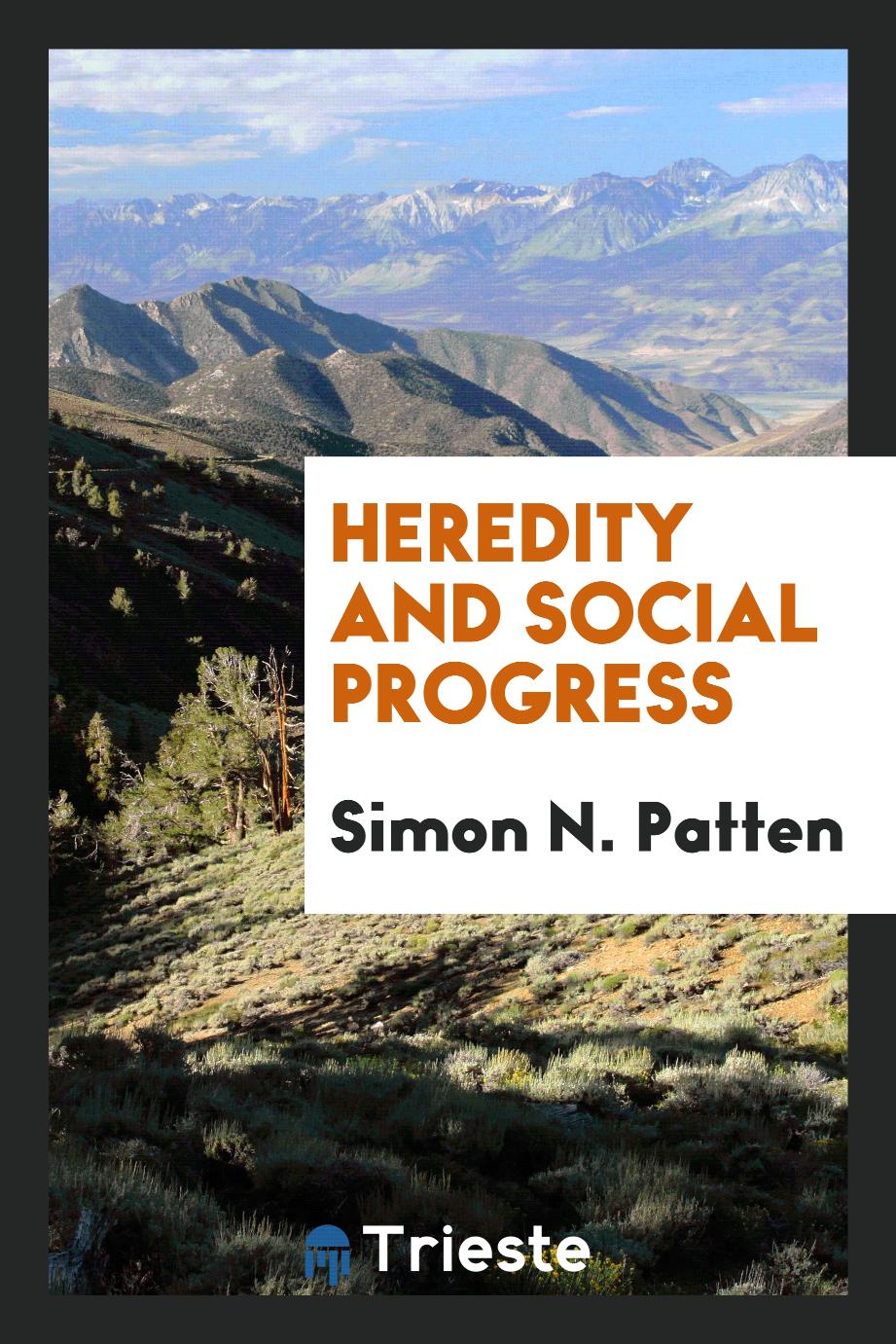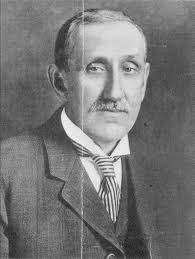
Simon N. Patten
Simon Nelson Patten (May 1, 1852 - July 24, 1922) was an economist and director of the Wharton School of Business at the University of Pennsylvania. Patten was one of the first economists to propose a shift from a "deficit economy" to a "fertility economy"; that is, he believed that soon there would be enough wealth to satisfy the basic needs of people and that the economy would switch from production to consumption. Patten studied at Halle University (1876-1879), where he came under the influence of Johannes Conrad, a member of the German School of History, a group of economists who believed that scientists should use their experience to solve modern social problems. His German experience strengthened his belief in social reforms and planned changes, but in the American context, that is, changes and reforms through voluntary actions with minimal state control. After several years of teaching in primary and secondary schools, Patten was appointed professor of economics at the University of Wharton, University of Pennsylvania, in 1887. He held this important post until 1917 when his energetic anti-war views put him in trouble, and he was forced to resign ahead of schedule. Over the years, he has published 22 books and several hundred articles, both scientific and popular. The New Foundation for Civilization (1907), the result of lectures he gave in 1905 at the New York School of Social Work, was his most important work. Between 1907 and 1923, eight editions were issued. Patten believed that thanks to new technology, Earth's resources would be sufficient to provide an abundance economy for the Western world; that is, there was enough wealth so that everyone could achieve the right diet, good basic housing, and clothing, and also receive an education that corresponded to the working requirements of the industry. What was missing was group social action to achieve these desired goals. However, he was very influential on the politicians and politicians of the progressive era. His thought can be compared with the thought of his contemporary, Thorstein Veblen.
